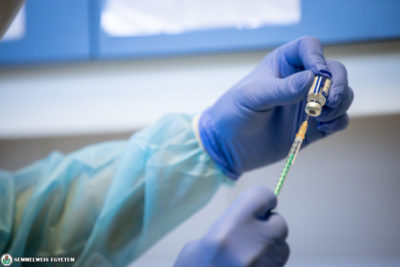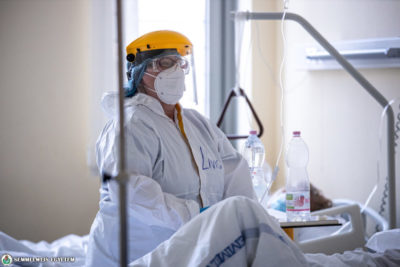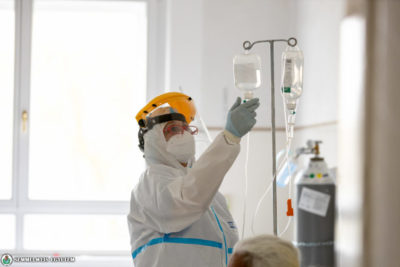With the help of the new CT system installed at the Department of Pulmonology, 60-80 COVID patients can be scanned on a daily basis, enablig faster and more secure patient care. The instrument is operated by the Medical Imaging Center of Semmelweis University, and its procurement was funded by the Ministry for Innovation and Technology. After the epidemiological situation is over, the CT may provide support for the department in the diagnostics of patients with oncological diseases and pulmonary fibrosis. Every COVID patient at Semmelweis University undergoes a chest CT scan to help accurate health status assessment.
A new CT system was installed at the Department of Pulmonology of Semmelweis University. The device has been in operation providing support in COVID patient care since 28 December, 2020. Now, three CT instruments located at the university are used in the diagnostics of COVID patients, however this is the first machine that is exclusively dedicated to the health care of infected patients – said Dr. Béla Merkely, rector.
“From now on, thanks to the new CT, the highest level of medical imaging will be available for the patients at one of the largest and most modern COVID patient care centers. This will enable more rapid and secure patient care and human resources will also be spared. Until now, the patients of the Emergency Department and the Department of Pulmonology had been examined by the CT located at the Central Health Care Building. Owing to the development, 60-80 COVID patients can be scanned on average on a daily basis at the Department of Pulmonology”, the rector highlighted.
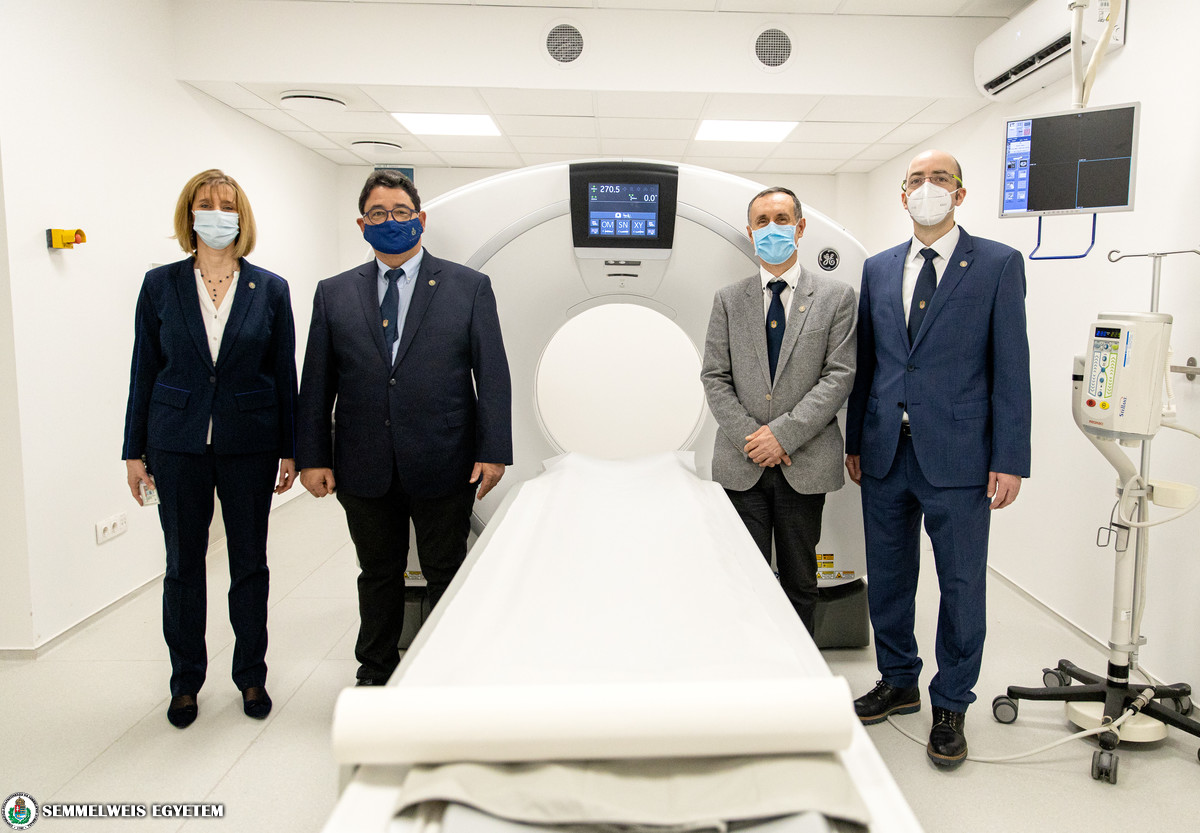 The recently installed 128-inch CT scan cost 120 million HUF, which was funded by the Ministry for Innovation and Technology, and it also supported the purchase of emergency.
The recently installed 128-inch CT scan cost 120 million HUF, which was funded by the Ministry for Innovation and Technology, and it also supported the purchase of emergency.
“The examination of the fine structure of the lungs can only be done by a CT. As far as the COVID epidemic is concerned, a CT scan is inevitable to set up a rapid diagnosis, to identify the severity of pneumonia and to prepare a treatment plan.”, pointed out Dr. Pál Maurovich-Horvat, director of the Medical Imaging Center, which is the department responsible for the operation of the equipment.
Thanks to the new CT, the diagnostic demands of other departments can be raised, too, which ensures an increase in the quality of patient care and patient safety on a university level. The equipment will be used in research projects at the Medical Imaging Center run in the framework of international collaborations. These projects study how artificial intelligence can be used to support medical decisions, such as risk assessment of unfavorable clinical outcomes of diseases.
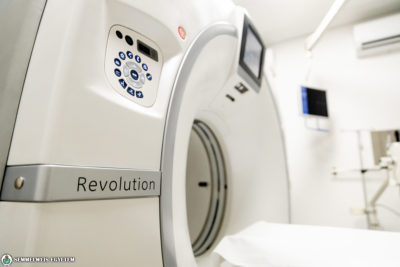 “An initial low-dose chest CT scan is performed on every COVID patient at Semmelweis University, to detect the extent of the infection and abnormalities in the lungs. Depending on the clinical condition of the patient and in case of deterioration, the examination may be repeated after a few days. Control check-ups are always performed following a treatment (for example remdesivir therapy) as well as before the patient leaves the hospital.”, emphasized Dr. Veronika Müller, head of the Department of Pulmonology.
“An initial low-dose chest CT scan is performed on every COVID patient at Semmelweis University, to detect the extent of the infection and abnormalities in the lungs. Depending on the clinical condition of the patient and in case of deterioration, the examination may be repeated after a few days. Control check-ups are always performed following a treatment (for example remdesivir therapy) as well as before the patient leaves the hospital.”, emphasized Dr. Veronika Müller, head of the Department of Pulmonology.
From a pulmonary point of view, it is very important that the CT scans displaying the fine structure of the lungs, abnormalities may be detected, occasionally predicting the development of an interstitial lung disease (pulmonary fibrosis). One of the most outstanding profiles of the Department of Pulmonology on a national and international level is the health care of patients with such diseases, which requires high resolution chest CT as a basic diagnostic element regulated by Hungarian directives.
“In this group of diseases, a simple chest X-ray is not applicable, therefore the equipment will not only be useful during the current epidemiological situation, but in the long run as well. The new CT will provide huge support in oncological patient care, especially in the examination of patients with lung cancer.”, said Dr. Veronika Müller.
Ádám Szabó
Photo: Attila Kovács – Semmelweis University
Translation: Katalin Illés-Romhányi
